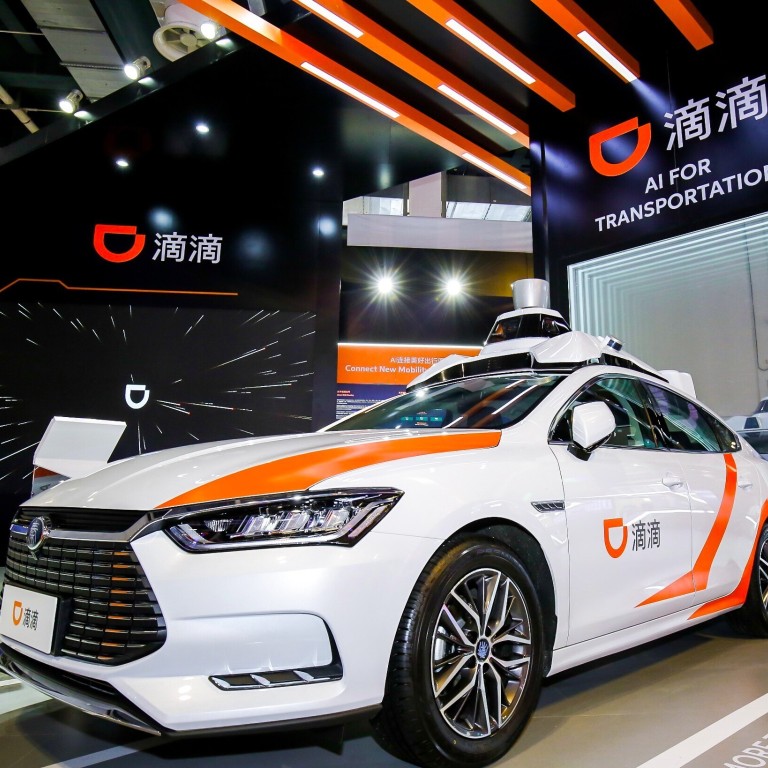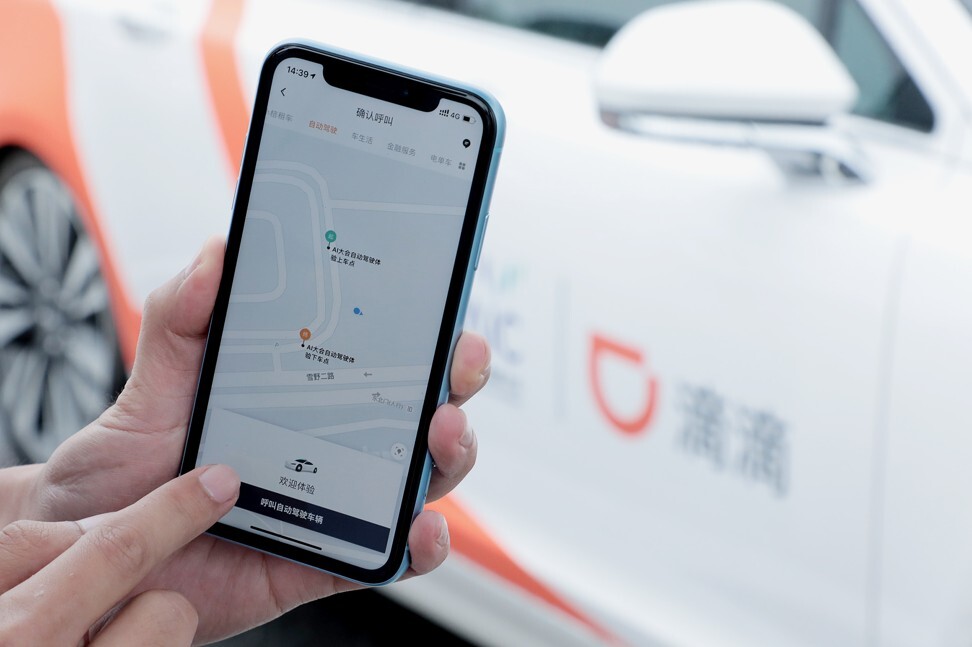
Didi Chuxing raises US$500 million for self-driving unit in funding round led by SoftBank
- The investment will bankroll further research and development, testing and collaboration on autonomous driving services in China and overseas
- It marks the single largest investment in China’s autonomous driving sector
The deal marks the first fundraising effort for the Didi unit, which became an independent business last year, as well as the single largest investment made in China’s autonomous driving sector, according to the Beijing-based ride-hailing giant in a statement on Friday. It did not provide a valuation for the subsidiary.
With more resources directed to self-driving technology, so-called vehicle-to-everything systems and related artificial intelligence (AI) capabilities, Didi said it plans to launch autonomous fleet operations in select locations across China, the world’s biggest car market. In addition, the company aims to deepen ties with car industry partners to mass-produce autonomous vehicles.

The successful funding initiative by Didi marks another step forward in the global move towards autonomous vehicles, which are quickly becoming the world’s first major AI revolution. The sector has drawn billions of dollars of investment over the past few years, with the global autonomous vehicles market projected to be worth US$65.3 billion by 2027, according to a report from Market Research Future.
The Chinese government wants a broad domestic ecosystem around smart vehicles established by 2025, when highly automated cars would make up 15 per cent of total vehicle sales.
Didi, which is one of Japanese tech conglomerate SoftBank’s major portfolio companies, started its research, development and testing of autonomous vehicles in 2016.
The ride-hailing company currently has open-road testing licences in Beijing, Suzhou and Shanghai, where it was one of the first to obtain approval to operate a pilot robotaxi service. Overseas, it has an open-road testing licence in California.
Didi boss Jean Liu says core business profitable, as China’s ride-hailing market recovers from Covid-19
Didi’s autonomous driving business is now working with Xiaoju Automobile Solutions, a one-stop car services platform, and Didi Finance to explore next-generation integrated mobility operations, including smart charging networks, fleet maintenance service and insurance programmes for autonomous fleets.
Still, Didi is expected to face strong competition as autonomous driving initiatives around the world move forward. A pack of self-driving start-ups and programmes have flourished in China over the past few years, as Beijing moved to foster the country’s leadership in hi-tech fields such as AI, the industrial internet and 5G mobile services. Pony.ai, for example, has already launched robotaxi services in China and the US.

